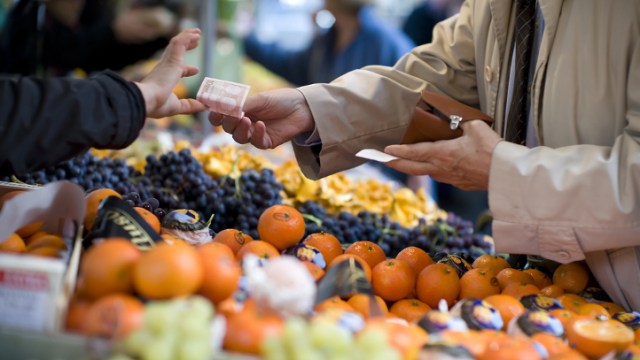The Importance of Drawing Mohammed

As you may be aware, this past Sunday was Everybody Draw Mohammed Day, in which freethinkers are exhorted to draw pictures of Mohammed to reaffirm their right to free expression in the face of Islamist demands for censorship. I grant that there’s room for debate over how much good this accomplishes directly, and some online commenters derided it as a waste of time, a juvenile attempt at provocation, or an act of pointless slacktivism. And if nothing had happened in response, they might have had a point.
But instead, the Islamists, who can be relied upon to be their own worst enemy in the court of public opinion, proved exactly what the point of EDMD is by flying into a full-scale frenzy. In response to religious pressure, Pakistan briefly blocked all of Twitter just to prevent its people from seeing a few ASCII art stick figures. Facebook was temporarily blocked as well, but apparently it was unblocked quickly after reportedly agreeing to “address Pakistan’s concerns” about the artwork. There was no further explanation of what this means. Did Facebook agree to censor its own users? Did they make some pages inaccessible only in Pakistan?
By contrast, Twitter stood up for the free speech rights of its users (one more reason I’m coming to prefer Twitter and rarely use Facebook). When their demands weren’t met, Pakistan supposedly turned to Interpol for help. I’m not clear what this was intended to accomplish, unless the Pakistani government was hoping to persuade Interpol to issue arrest warrants against Twitter’s founders for declining to censor their own site, in which case I presume they were laughed out of court as they deserve.
Nor is Pakistan the only Muslim-majority democracy where free speech is too often crushed underfoot. Indonesia, the nation with the world’s largest Muslim population, is often held up as a model of democratic tolerance, but in reality, many parts of Indonesia are de facto theocracies under a patchwork of oppressive laws and mob violence. Such is the case in the story of Alex Aan, an Indonesian civil servant who’s facing imprisonment merely for professing on Facebook to be an atheist:
He faces the possibility of up to six years in prison, charged with blasphemy, disseminating hatred and spreading atheism. Radical Muslims came to his office, beat him up, and called the police after reading about his views on Facebook.
The reporter of this story, though himself a Christian, understood quite well that infringing on anyone’s freedom of conscience threatens everyone. Granted, in this case the parallels aren’t hard to see, since Islamist mobs in Indonesia have also succeeded in closing Christian churches in defiance of court orders, as well as brutally beating and persecuting members of small dissident sects like the Ahmadiyya. (I should point out for the sake of completeness that Maryam Namazie has been covering the Alex Aan case since January.)
While we’re on the topic of Indonesia, and though it seems trivial next to the Alex Aan story, it’s also worth noting that a planned Lady Gaga concert in Jakarta was cancelled, again due to angry Muslim mobs. This is one of the rare religious censorship efforts that has the dubious distinction of being interfaith, since Christian groups have also been demanding the cancellation of her concerts throughout the region.
The important thing to recognize here is that, even though blasphemy laws are usually presented as a way to “safeguard public morals”, they inevitably end up serving as a useful pretext for corrupt or dictatorial rulers to silence their critics and political opponents. See also Thailand, whose lese-majeste laws forbidding any disrespect of the Thai royal family have often been wielded by the government against the opposition, and India, where laws sheltering various ethnic and religious groups from criticism have a smothering effect on democracy. Probably the most outrageous example was a story I wrote about in 2008, where a Jordanian prosecutor demanded the Netherlands extradite Geert Wilders to Jordan to be punished for saying things about Islam that some people took offense to.
This is the thread that links Everybody Draw Mohammed Day with Alex Aan, that runs from Lady Gaga to Geert Wilders. Even when it’s wielded in trivial and seemingly silly ways, the right to think, speak and express ourselves as we wish is powerful, revolutionary, and terrifying to tyrants whose rule depends on their legitimacy never being questioned. This is true of those who physically rule over a country as well as those whose dominion exists solely in the minds of their followers. Even drawing a stick figure and proclaiming it to be a picture of Mohammed is a symbolic affirmation that we, and not some enthroned ruler or long-dead cleric, will decide for ourselves what thoughts we’ll think and what ideas we’ll entertain. And in claiming that right, we implicitly claim all the others that accompany it: to speak and write as we wish, to discuss and debate freely, to protest and demand the redress of grievances. These rights have dragged humanity up and out of the dark ages, and we need to regularly exercise them if we want more progress to be made.
I’m on Twitter now! Follow me at @DaylightAtheism.





